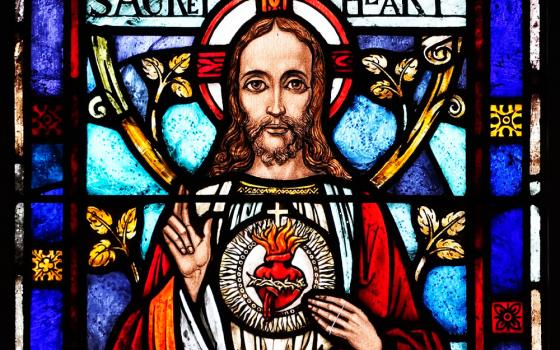Pope Francis greets visitors gathered in St. Peter's Square at the Vatican to pray the Angelus Sept. 10, 2023. (CNS photo/Vatican Media)
Rather than engage in petty gossip, which leads to scandal, Christians are called by Jesus to be direct yet loving in offering help to an errant friend, Pope Francis said.
Fraternal correction is "one of the highest expressions of love, and also one of the most demanding," the pope said before praying the Angelus with some 20,000 people in St. Peter's Square Sept. 10.
Unfortunately, when someone makes a mistake, one of the first things that follows is gossip, he said, through which everyone but the person concerned comes to know the details of the incident.
"This is not right, brothers and sisters," Francis said. "Gossip is a plague on the life of people and communities because it leads to division, it leads to suffering, it leads to scandal; it never helps anyone improve or grow."
Alternatively, the pope recalled the day's reading from St. Matthew's Gospel in which Jesus says to tell someone of their fault "between you and him alone."
"Speak to him about it 'face to face,' speak about it fairly, to help him understand where he has erred," the pope said. "And do this for his own good, overcoming shame and finding true courage, which is not to slander, but to tell him to his face with meekness and gentleness."
Advertisement
If speaking one-on-one is not enough, the pope said, Jesus suggests involving one or two others to talk with the person -- "not from the group that gossips," but "people who genuinely want to lend a hand to this misguided brother."
And if a small-group encounter proves insufficient, then involve the community, Francis said. "But here too, this does not mean to pillory a person, putting him to shame publicly, but rather to unite the efforts of everyone to help him change."
"Pointing the finger is not good; in fact, it often makes it more difficult for the wrongdoer to recognize his mistake," he said, underscoring the need to condemn the mistake while being "close to the person with prayer and affection, always ready to offer forgiveness, understanding, and to start over."
Francis urged Christians to ask themselves how they behave with people who wrong them. "Do I keep it inside and accumulate resentment?" he asked. "Do I talk about it behind their backs?"
The pope ended his reflection by posing a question to the crowd in St. Peter's Square: "Do you point the finger or open your arms?"








